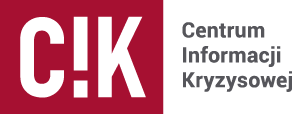Finished projects
CoSky – Polish-Norwegian bilateral initiative for increased efficiency of use of drones in civil protection
 In October 2024, the Polish - Norwegian bilateral initiative CoSky was launched under the Program "Internal Affairs", implemented within the framework of the Norwegian Financial Mechanism and the EEA Grants 2014 - 2021. The program is managed by the Polish Ministry of the Internal Affairs and Administration. Led by the Crisis Information Centre of the Space Research Centre of the Polish Academy of Sciences (CIK CBK PAN) in collaboration with Norway's Directorate for Civil Protection (DSB) and the company Tiepoint, this initiative seeked to enhance the efficiency of drone use in civil protection in Poland and Norway.
In October 2024, the Polish - Norwegian bilateral initiative CoSky was launched under the Program "Internal Affairs", implemented within the framework of the Norwegian Financial Mechanism and the EEA Grants 2014 - 2021. The program is managed by the Polish Ministry of the Internal Affairs and Administration. Led by the Crisis Information Centre of the Space Research Centre of the Polish Academy of Sciences (CIK CBK PAN) in collaboration with Norway's Directorate for Civil Protection (DSB) and the company Tiepoint, this initiative seeked to enhance the efficiency of drone use in civil protection in Poland and Norway.
The initiative focused on facilitating the operational use of drones by exchanging experiences and best practices in two key areas:
- Coordination of complex air operations (involving both drones and manned aviation),
- Generating and sharing maps based on drone data.
In Poland the Polish Air Navigation Services Agency and the Crisis Information Centre CBK PAN in cooperation with the State Fire Service have undertaken a series of activities to develop and validate an innovative model enabling safe and effectively coordinated flights by both types of aviation during crisis operation. This model introduces the roles of Air Operations Coordinator and Flight Manager who are supported by the dedicated “Search & Help” IT system enabling efficient communication with UAV pilots. During the project, operational tests of the S&H system were conducted, comparing it with Norwegian solutions such as NINOX and HemsWX. A key element was the analysis of experiences from Polish and Norwegian rescue operations, including the floods in Poland in September 2024.
The project also addressed the topic of rapid UAV mapping, analysing experiences from events such as the Gjerdrum landslide in 2020, where drones provided the first 3D map just 18 hours after the disaster. The project issued recommendations for integrating drone data with GIS and crisis management systems. Additionally, an e-learning course on UAV mapping for crisis management was created, available in Polish, Norwegian, and English.
The final outcome of the project was a three-year roadmap outlining the development directions for air traffic management (ATM) and UAV mapping in Poland. This document includes perspectives for further bilateral cooperation with Norway and recommendations for implementing new technologies and practices within the framework of the Union Civil Protection Mechanism (UCPM).
The results of CoSky were presented on February 18, 2025, during the final conference at the Copernicus Science Center in Warsaw. The event gathered over 80 representatives from public administration, emergency services, and experts from Poland and Norway. Discussions focused on the future of drone use in civil protection, including further development of flight coordination systems and UAV mapping.
The project recieved funding from the Polish Ministry of Science and Higher Education under the "International Co-Financed Projects" programme for 2024, in the amount of 125,829.00 PLN.
Project Duration: October 2024 – February 2025
COLLARIS Network: COLLaborative network on unmanned AeRIal Systems
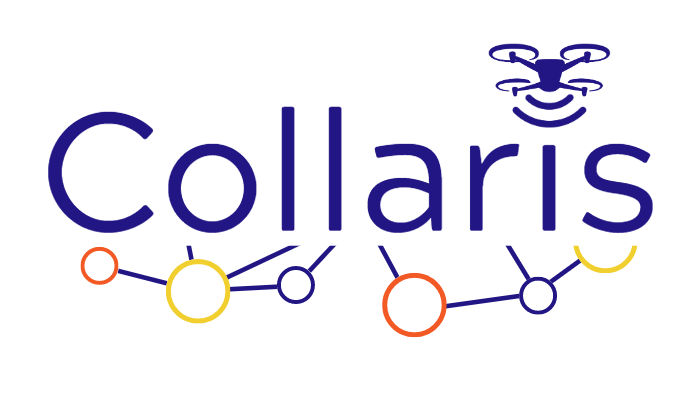 Scientific advances as well as fast-evolving drone technology and its applications have today become indispensable in all phases of the disaster risk management cycle. COLLARIS is a capacity-building initiative to develop a sustainable European network of scientific, engineering, and end-user expertise related to unmanned aerial systems (UAS) in civil protection and disaster response.
Scientific advances as well as fast-evolving drone technology and its applications have today become indispensable in all phases of the disaster risk management cycle. COLLARIS is a capacity-building initiative to develop a sustainable European network of scientific, engineering, and end-user expertise related to unmanned aerial systems (UAS) in civil protection and disaster response.
COLLARIS covered the following thematic focus areas:
- identification and sharing of operational procedures, lessons learnt, and best practices using UAS
- elaboration of air traffic management challenges, solutions, and operational practices
- acquisition of solutions for data analysis and data sharing, as well as auxiliary support systems (e.g. simulators)
- development of methods for increasing end-user competences
- foresight of new developments and future use case scenarios to identify tomorrow’s needs and gaps, technological capabilities, and their potential applications
The general concept of COLLARIS was based on two assumptions: That the technical capabilities related to UAS will continue to develop rapidly, as will the scope of their application for civil protection and crisis management purposes; and that the gap between these recently created technical capabilities and the practical needs and operational practices of civil protection not utilising them yet will remain a permanent challenge. Therefore, there is a clear need for establishing a stable long-term mechanism to continuously support the civil protection community in gradual implementing innovations enabled by UAS developments. The COLLARIS-based community made an important contribution to achieve that.
COLLARIS offered a networking platform as part of the Union Civil Protection Knowledge Network for information exchange and experimentation with advanced concepts of UAS for disaster response and crisis management. These activities were accompanied by thematic workshops, webinars, and moderated discussions as well as trials and embedded first responder trainings, aimed at increasing the efficiency of UAS operations by bringing knowledge closer to operational use.
COLLARIS Network was coordinated by Crisis Information Centre CBK PAN (PL), with MSB (SE), Valabre (FR), DCNA (AT) and KIOS (CY) as consortium partners.
Duration: January 2023 - December 2024
Innovation in Disaster Risk Reduction
 Polish Government Centre for Security (RCB), the Polish Crisis Information Centre (CIK CBK PAN) and the Norwegian Directorate for Civil Protection (DSB) carried out a joint project on Innovation in Disaster Risk Reduction in the context of the Midterm Review of the Implementation of the Sendai Framework for Disaster Risk Reduction 2015-2030. The activities were focused on organization of an international conference and preparation of related thematic reports.
Polish Government Centre for Security (RCB), the Polish Crisis Information Centre (CIK CBK PAN) and the Norwegian Directorate for Civil Protection (DSB) carried out a joint project on Innovation in Disaster Risk Reduction in the context of the Midterm Review of the Implementation of the Sendai Framework for Disaster Risk Reduction 2015-2030. The activities were focused on organization of an international conference and preparation of related thematic reports.
The conference Innovation in Disaster Prevention: challenges, solutions and opportunities took place on 9-11 May 2023 in Cracow. It gathered crisis management specialists, responders, scientists, local authorities and private sector representatives from Norway, Poland and 30 other countries in place and on-line.
During three days 36 panellists representing international organisations (UNDRR, OECD, CBSS, ESA), European Union (DG ECHO, EUSPA), governments (incl. Poland, Portugal and USA), academia (PAN, UW), private sector and local authorities (cities of Cracow and Wroclaw (PL) and Stavanger (NO)) took the floor to share their experiences and discuss possible cooperation.
Two thematic reports were prepared by the project partners on the basis of their expertise and outcomes of the conference.
“Innovation in Disaster Prevention – post conference paper” provides a broad overview of issues discussed during the event, set in a wider pan-European context. The report is focused on: current challenges, solutions, especially innovative technologies, opportunities within innovations and available funding mechanisms.
“Geoinformation for crisis management: guidelines and examples” report is divided into two parts. The first general section covers issues like GIS data sources, areas of application for crisis management purposes, possible support mechanisms, expert structures and organizations. The second part of the report contains 12 different use cases, describing practical examples of successful implementation of GIS-based solutions to help solve challenges faced by public administration at national and/or regional levels.
The conference was made possible through support from the EEA/Norway Grants, as a Polish-Norwegian bilateral initiative under the Disaster Prevention and Preparedness Programme.
Duration: July 2022 – June 2023.
ProSPeReS - Protection System for large gatherings of People in Religious Sites
 ProSPeReS project focuses on protecting religious sites from terrorist attacks. It was selected by the European Commission for funding from the Internal Security Fund – Police for the years 2014-2020 (ISFP). It is a special fund, which aims to implement the internal security strategy, cooperation in the enforcement of law and management of the external borders of the European Union.
ProSPeReS project focuses on protecting religious sites from terrorist attacks. It was selected by the European Commission for funding from the Internal Security Fund – Police for the years 2014-2020 (ISFP). It is a special fund, which aims to implement the internal security strategy, cooperation in the enforcement of law and management of the external borders of the European Union.
Religious sites are considered to be especially vulnerable to attacks due to their accessibility and the fact that there are usually limited security measures applied. In recent years, religious sites of different faiths were targeted by extremists. The feedback collected from religious institutions and authorities suggests that there is a growing concern about the security issues and a balance should be kept between security and preservation of the open nature of religious sites.
Thus, the project is aimed at increasing the level of protection in places of worship by forming an outstanding cooperation of scientists, security experts and practitioners, public services and religious institutions (representing Catholic Church, Greek Orthodox Church and Jewish Community) towards preparing a comprehensive protection system. The system will cover measures for increasing prevention, protection, deterring and responding to various types of terrorist threats and incidents that may occur in religious places, including attacks with CBRN agents. The measures will be comprised of a set of tailormade templates, tools, procedures, equipment, improvements in infrastructure according to “security in design” and protocols of cooperation with public services.
The implementation of the system will be enhanced by preparing and initiating modular training including eLearning with VR, applicable in various types of education in religious structures; conducting large-scale exercises; and conducting EU-wide awareness-raising campaign aiming at faith-based leaders, worshipers and public in general. The significant impact of the project at a European level appears achievable due to the fact of consulting the project idea with influential religious organizations and involving them in the consortium as well as receiving very positive feedback from international religious structures, that confirmed the relevance of the project assumptions and willingness to support the introduction of the system in all EU MS.
The approach of the project is to prepare a relevant, well-addressed and validated protection system and assure its EU-wide benefit to the protection of religious sites by cooperation among key stakeholders.
Therefore, the consortium is comprised of a large number of organizations (18) from 6 countries (Poland, Greece, Slovakia, Cyprus, Finland, the Netherlands), representing science and expert institutions, public services such as police, fire-fighters, crisis management, and last but not least the end-users - religious institutions and religious sites operators. The project is coordinated by the University of Łodz.
Duration: June 2020 - November 2023
Grant Agreement 101034230 — ProSPeReS — ISFP-2020-AG-PROTECT
The website of Prosperes project
Project Prosperes video
USeEO – Custom EO Tools for Resilience Management in Poland
This project aims to develop and validate a set of customized Earth Observation (EO) derived information products to support the different stakeholders working in the resilience sector in Poland and verify the utility and benefits resulting from the use of these products. The consulted end-users have identified the following areas of interest to be addressed within this project:
- detection of damages in the area of crisis situation,
- monitoring of land cover changes in risk areas,
- detection of areas prone to local flooding from underground waters,
- monitoring of ice cover on rivers using VHR data,
- monitoring of water bodies extend using VHR data,
- monitoring of land subsidence,
- integration of the various information layers into an integrated assessment capability for
- resilience management.
For each of the above mentioned use cases, the project consortium will provide a set of customised products and digital service based on EO data, which will be exploited and examined by the first responders.
Through the close collaboration with the end users, constructive feedback on the practical utility of the listed products in the emergency situations and decision making processes will be gathered and transformed into helpful information to further support the users’ actions and decision making process and provide guidelines for the possible next steps to support practical implementation of EO solutions in the end-users' everyday work.
Apart from developing and validating a pre-defined set of EO products and IT solutions, the project results will contribute to:
- prove the utility of EO data gathered within EU Copernicus Program,
- develop cooperation framework between technology providers and end-users in the crisis management domain,
- demonstrate that the access to EO data can be easy and intuitive for crisis responders,
- develop the EO based products and services adjusted to the user needs, which can be easily integrated with other tools and integrated with an existing management systems,
- develop Roadmap for future improvements and more advanced EO data implementation,
- demonstrate the possibilities to extend developed EO-based solutions to other regions and countries.
The UseEO projekt is carried out under the Polish Industry Incentive Scheme within ESA. The consortium is led by Astri Polska, with CBK PAN, Institute of Geodesy and Cartography and Satim Ltd. as partners.
Duration: 12 May 2021 - 11 May 2023
HERoS - Health Emergency Response in Interconnected Systems
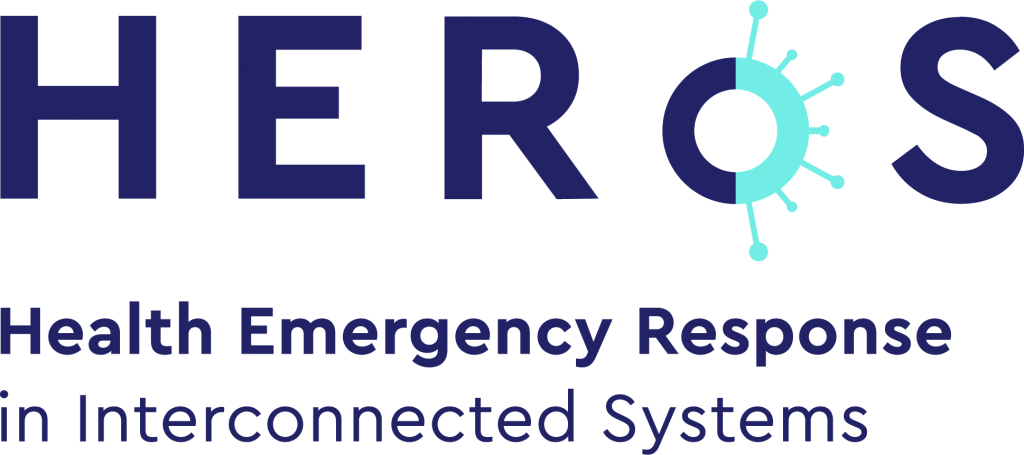 The overall objective of HERoS is to improve the effectiveness and efficiency of the response to the Covid-19 outbreak. HERoS creates and provides policies and guidelines for improved crisis governance, focusing on responders to public health emergencies, and their needs to make informed decisions. HERoS further improves the predictions of the spread by understanding and modelling the impact of local behaviour on the spread of the disease. Furthermore, HERoS improves the management of medical supply chains for preparedness and response, as well as evaluates the impact of cascading effects across global supply chains.
The overall objective of HERoS is to improve the effectiveness and efficiency of the response to the Covid-19 outbreak. HERoS creates and provides policies and guidelines for improved crisis governance, focusing on responders to public health emergencies, and their needs to make informed decisions. HERoS further improves the predictions of the spread by understanding and modelling the impact of local behaviour on the spread of the disease. Furthermore, HERoS improves the management of medical supply chains for preparedness and response, as well as evaluates the impact of cascading effects across global supply chains.
CIK CBK PAN will be responsible for geoinformation and visualization of data and models. Key partners are Hanken School of Econimics (HUMLOG Institute), TU Delft, VU Amsterdam, The Open University, NHG Consulting Oy, CBK, Squadron, Polish Center for International Aid, Arttic, Italian Red Cross, Project HOPE.
Duration: April 2020 – April 2023

This project has received funding from the European Union’s Horizon 2020 research and innovation programme under grant agreement No 101003606.
ARTION - Disaster Management Artificial Intelligence Knowledge Network

The main goal of the project is to establish the Disaster Management Artificial Intelligence Knowledge Network (ARTION), with the vision to become a world-class network for knowledge sharing in the area of utilisation of artificial intelligence in disaster management. The network will guide the development and use of AI tools by first responders across Europe.
The planned project outputs are:
- Research and development activities focused on innovative AI technologies for disaster management,
- Quantifiable Field Exercises for collection of data and algorithms’ evaluation,
- Training and networking for sharing knowledge, exchanging experience and establishing new partnerships,
- Open Knowledge portal to promote AI for disaster management and engage the scientific and expert community.
By achieving these specific objectives ARTION aims to bridge the gap between AI scientists and disaster management experts, build capacity and competency of first responders in the use of AI technology, share knowledge and data, and stimulate further AI research towards application-specific challenges faced throughout the disaster management cycle.
ARTION project will be carried out by an international consortium coordinated by KIOS Research and Innovation Center of Excellence from Cyprus, with Hanken Cyprus Civil Defence (Cyprus), University of Lille (France), Crisis Information Centre (Poland) and Italian Civil Protection RAS (Italy) as partners.
Duration: 18 months.
The project has received funding from the European Union’s Call for proposals in the field of Civil Protection under the Union Civil Protection Knowledge Network under grant agreement 101017763.
Sat4Envi - The operating system for collecting, sharing and promotion of digital satellite information about the environment
 The project "Operating system for sharing and promotion of digital satellite information about the environment - Sat4Envi" is a project implemented by the Institute of Meteorology and Water Management - National Research Institute in cooperation with Space Research Centre of Polish Academy of Sciences (CBK PAN), Academic Computer Centre CYFRONET AGH and Polish Space Agency (POLSA).
The project "Operating system for sharing and promotion of digital satellite information about the environment - Sat4Envi" is a project implemented by the Institute of Meteorology and Water Management - National Research Institute in cooperation with Space Research Centre of Polish Academy of Sciences (CBK PAN), Academic Computer Centre CYFRONET AGH and Polish Space Agency (POLSA).
The main purpose of the Sat4Envi project is to provide satellite data from the Copernicus program and data from other environmental and meteorological satellites.
CBK PAN in Sat4Envi project is responsible for:
- creating the Mobile Satellite Data Analysing and Development Centre, which will enable the effective use of digital satellite data in emergency rescue management. The Mobile Centre will also allow the implementation of a pilot participation program for specialists in the field of using satellite information from the Crisis Information Centre of CBK PAN, in order to satisfy their operational needs,
- development and implementation of the Training Program for statutory users in the field of crisis management and rescue, including the acquisition, analysis and use of satellite data,
- user support in ordering, using and interpreting data provided as part of the Customer Service System platform, with particular emphasis on crisis management and rescue.
Duration: October 2017 - September 2020
The project is being realised as part of the Operational Program Digital Poland.


DRIVER+ - Driving Innovation in Crisis Management for European Resilience
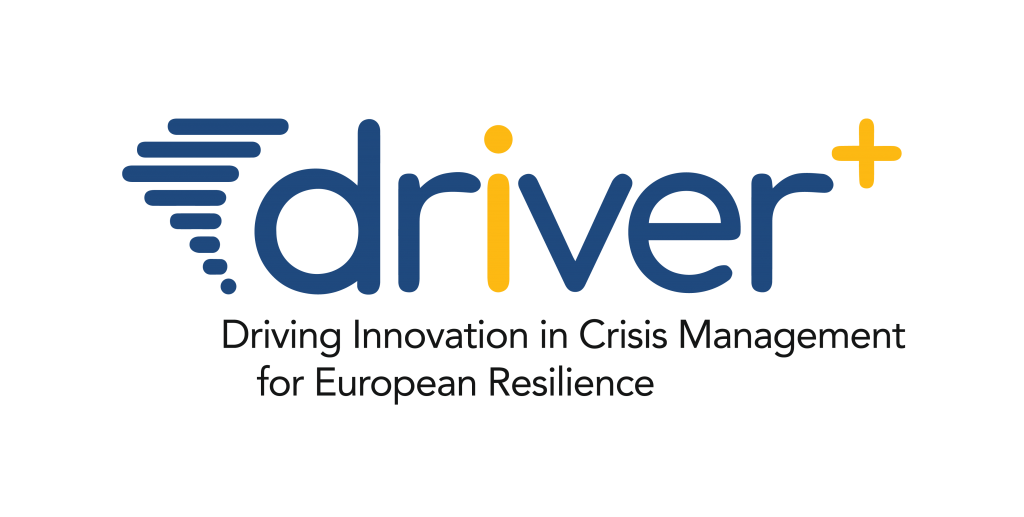 Current and future challenges due to increasingly severe consequences of natural disasters and terrorist threats require the development and uptake of innovative solutions that are addressing the operational needs of practitioners dealing with Crisis Management (CM). DRIVER+ is a FP7 Crisis Management demonstration project aiming at improving the way capability development and innovation management is tackled. DRIVER+ has three main objectives:
Current and future challenges due to increasingly severe consequences of natural disasters and terrorist threats require the development and uptake of innovative solutions that are addressing the operational needs of practitioners dealing with Crisis Management (CM). DRIVER+ is a FP7 Crisis Management demonstration project aiming at improving the way capability development and innovation management is tackled. DRIVER+ has three main objectives:
1. Develop a pan-European Test-bed for Crisis Management capability development:
- develop a common guidance methodology and tool (supporting trials and the gathering of lessons learned,
- develop an infrastructure to create relevant environments, for enabling the trialing of new solutions and to explore and share CM capabilities,
- run trials in order to assess the value of solutions addressing specific needs using guidance and infrastructure,
- ensure the sustainability of the pan-European Test-bed.
2. Develop a well-balanced comprehensive Portfolio of Crisis Management Solutions:
- facilitate the usage of the Portfolio of Solutions,
- ensure the sustainability of the portfolio of tools.
3. Facilitate a shared understanding of Crisis Management across Europe:
- establish a common background,
- cooperate with external partners in joint trials,
- disseminate project results.
Duration: September 2017 - April 2020
This project has received funding from the European Union’s 7th Framework Programme for Research, Technological Development and Demonstration under Grant Agreement (GA) N° #607798 and from financial resources for science in 2018-2023 granted for the implementation of an international co-financed project.
More information about the DRIVER+ project available here: http://www.driver-project.eu/
EO4EP - Earth Observation for Eastern Partnership
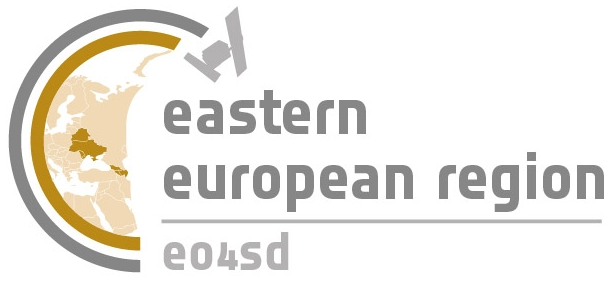
Earth Observation for Eastern Partnership is an European Space Agency initiative which aims to achieve a step increase in the uptake of satellite-based environmental information in the development programs implemented by the World Bank and the European Investment Bank in the Eastern European Region (Armenia, Georgia, Moldova, Poland), in particular in order to support the technical collaboration and knowledge exchange among Eastern Partnership countries.
The activities are implemented in the 2016–2018 timeframe, with Phase I (2016-2017) dedicated to the stakeholders’ engagement and requirements consolidation, and the Phase II (2017–2018) focusing on EO information production, delivery and capacity building to ensure that the information brings operational benefits to the users. The project is focused on the following thematic areas: agriculture, land management and water resources management.
The project is led by the Space Research Centre of the Polish Academy of Science (CBK PAN), and the consortium consists of companies providing products and serivces based on satellite data - from Poland: Astri Polska, Geosystems Polska, GeoPulse and from Czech Republic: Gisat. The team is supported by the Polish Center for International Aid.
EDEN - End-user driven DEmo for cbrNe

The EDEN project was focused on scientific and technical issues related to enhancing CBRNE (chemical, biological, radiological, nuclear and explosive) safety. The main aim was the application of diverse toolsets (the Eden Store ‘Toolbox of Toolboxes’) that were integrated, tested and evaluated in thematic demonstrations during training and practical activities. The project was led by BAE Systems (Operations) Ltd in the United Kingdom and involved 37 organisations from 15 European countries.
The Crisis Information Centre was involved in 16 of the 39 workpackages. Its activity was focused on radiological and nuclear threats in a workpackage led by the Main School of the Fire Service in Poland. The Centre was responsible for the “Test-Service Period”, which provided users with free access to the EDEN Store tools, and the organisation of table top exercises.
Duration: 1 September 2013 – 31 December 2016
This project has received funding from the European Union’s Seventh Framework Programme for research, technological development and demonstration under grant agreement no 313077.
SimSpace – Training Simulation System for Crisis Management
The project was co-financed within PECS contract of European Space Agency. It was realised by Sigma Games Aleksander Sierżęga company and the Crisis Information Centre CBK PAN.
Main goal of the project was to create a simulation system which will demonstrate for crisis management, transport and logistics environments in Poland a wide spectrum of possible usage of different data that originates from satellite observation in training and simulating from the analysis point of view and as a support in decision making process.
Crisis Information Centre was responsible for demonstration phase, preparing simulation scenarios and maps based on satellite images processing.
GECCO - Space-Derived Geoinformation For Crisis Management and Coordination
The purpose of the project was to demonstrate to the Polish crisis management and rescue services a variety of possible uses for space-derived information, to evaluate its effectiveness, and to establish the best way to provide access to information products.
The project resulted in:
the development of a set of analytical products, based on space-derived information that can provide strategic and situational information to crisis management authorities;
the development of an integrated information environment that provides access to information products and supports information exchange for professional users (Professional Portal) and Professional Mobile Application) as well as providing crisis information and disseminating warnings to the general public (Public Portal and Mobile Application) and
a set of recommendations for the implementation of a geoinformation environment for crisis management in Poland.
CIK was responsible for the demonstration phases of the project and the development of new geo-information products. These tasks included the presentation of GECCO to end users, testing, and gathering the necessary information to meet the users’ needs and expectations. The Centre also provided input in the form of EO products and geospatial analyses that could be used by crisis management organisations.
GECCO was funded by the Government of Poland through the European Space Agency Contract under the Plan for European Cooperating States (PECS).
Duration: 1 September 2013 – 29 February 2016
Study of hydraulic modeling for flood prevention - 2nd stage - support to the competence and readiness of Georgian institutions
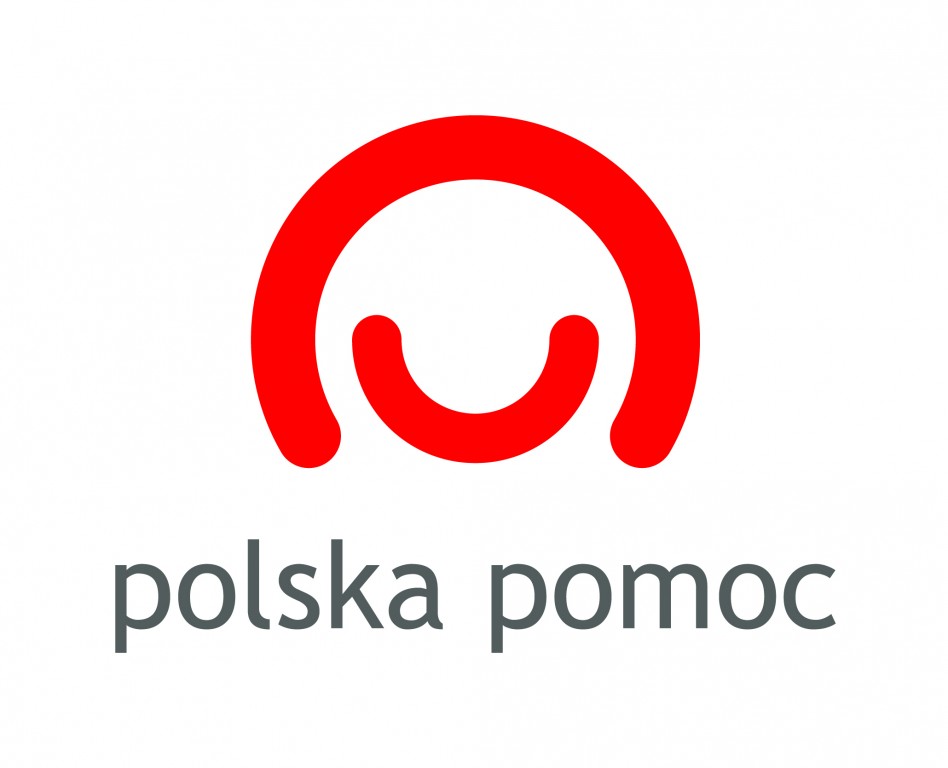 The project was led by the Polish Center for International Aid (PCPM) and financed by the Polish development cooperation programme of the Ministry of Foreign Affairs of the Republic of Poland in 2016.
The project was led by the Polish Center for International Aid (PCPM) and financed by the Polish development cooperation programme of the Ministry of Foreign Affairs of the Republic of Poland in 2016.
One of the main goals was strengthening competencies of specialists from the National Environment Agency of Georgia (NEA) in hydrologic and hydraulic modeling. The project was a continuation of PCPM's activities from the year 2015, when a group of employees from NEA learned the theoretical basics of modeling and main functions of software which is used for that purpose. This time, under the supervision of specialists from the Regional Water Management Authority in Kraków, the University of Agriculture in Kraków and CBK PAN, they independently modeled the Aragvi River and five smaller rivers in Alazani basin in eastern Georgia and got to know more advanced functions of software.
The Crisis Information Centre CBK PAN took part in consultations concerning preparation of geospatial data as input to hydrologic model and prepared visualisations of participants' work results, including maps of flood hazard zones.
Anti-flood early warning and prevention systems in Georgia: special focus on Kabali and Duruji rivers
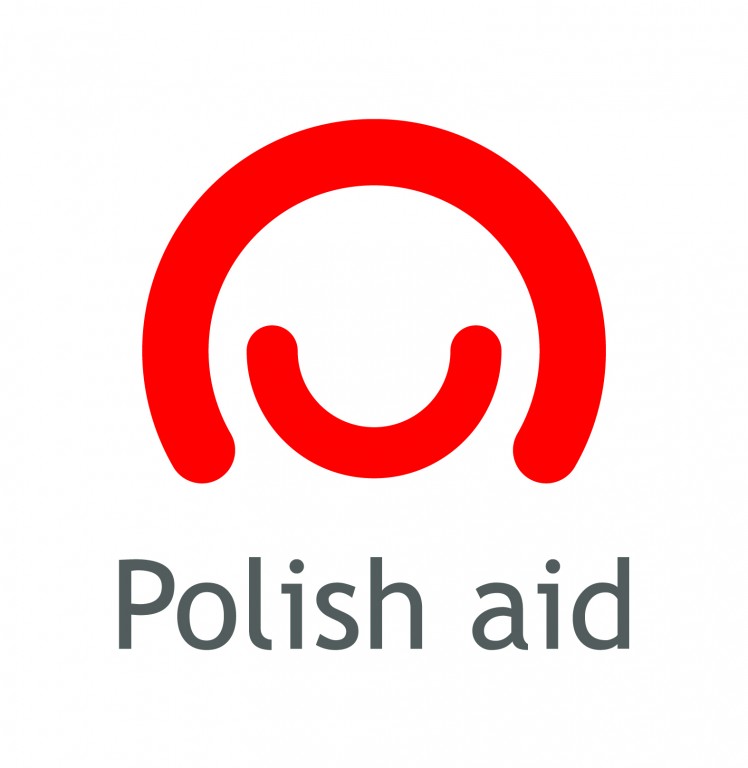 Duration: 01.04.2014 – 30.10.2015
Duration: 01.04.2014 – 30.10.2015
Project was conducted by the Polish Center for International Aid and financed by the Polish development cooperation programme of the Ministry of Foreign Affairs of the Republic of Poland.
The main aim of the project was to increase the level of crisis management efficiency of local governments in the respond to flash-floods on selected rivers in Kakheti region of Georgia. For this purpose there was created pilot alert system for a possible flood threat warning. Project was also going to improve planning process in crisis management through introducing GIS, EO and simulation tools.
Hydrologic and hydraulic modeling of the Kabali River and the Duruji River was carried out in the first year of project duration and the Lagodekhi River and the Ninoskhevi River in the second year. Spatial data such as digital elevation models, longest flow paths, catchments, land cover and soil permeability maps and other vectors were prepared by CIK CBK PAN. As a result of modeling, conducted by hydrologists from Regional Water Management Board in Cracow, flood zones were created and presentaed on the flood hazard maps. At the same time local response plans were modified and improved by Polish experts.
CIK CBK PAN has also developed a conception of water gauges network and was responsible for support of their installation and evaluation of their work.
At the end of November 2014 workshops were held in two towns in Georgia threatened by rivers Kabali and Duruji. CIK CBK PAN prepared and led the exercises for members of municipalities responsible for management in the case of crisis situation. During the simulation local authorities received information according to the scenario of flood and their task was to work out response and make decisions supported by response plan and maps of flood zone. The simulation was repeated in the year 2015. This time it was held by Georgian specialists from state institutions with support of Polish experts. CIK CBK PAN played supportive role and prepared flood hazard maps. The exercise was preceded half a year earlier by a test which had to verify the knowledge of local response plan among members of crisis management team of Kvareli and Lagodekhi municipalities.


